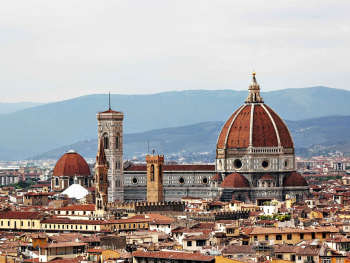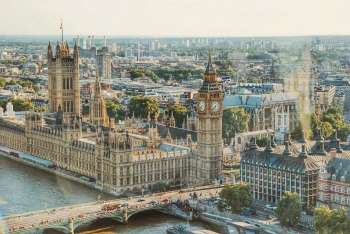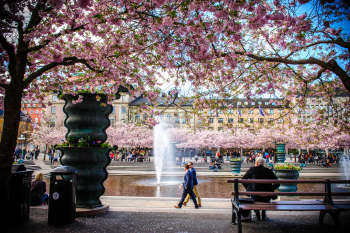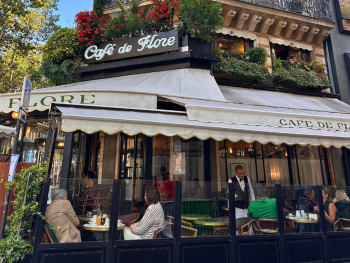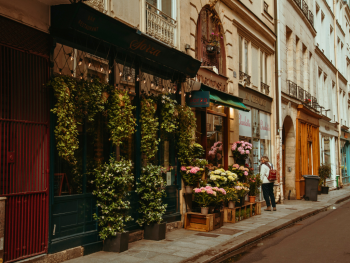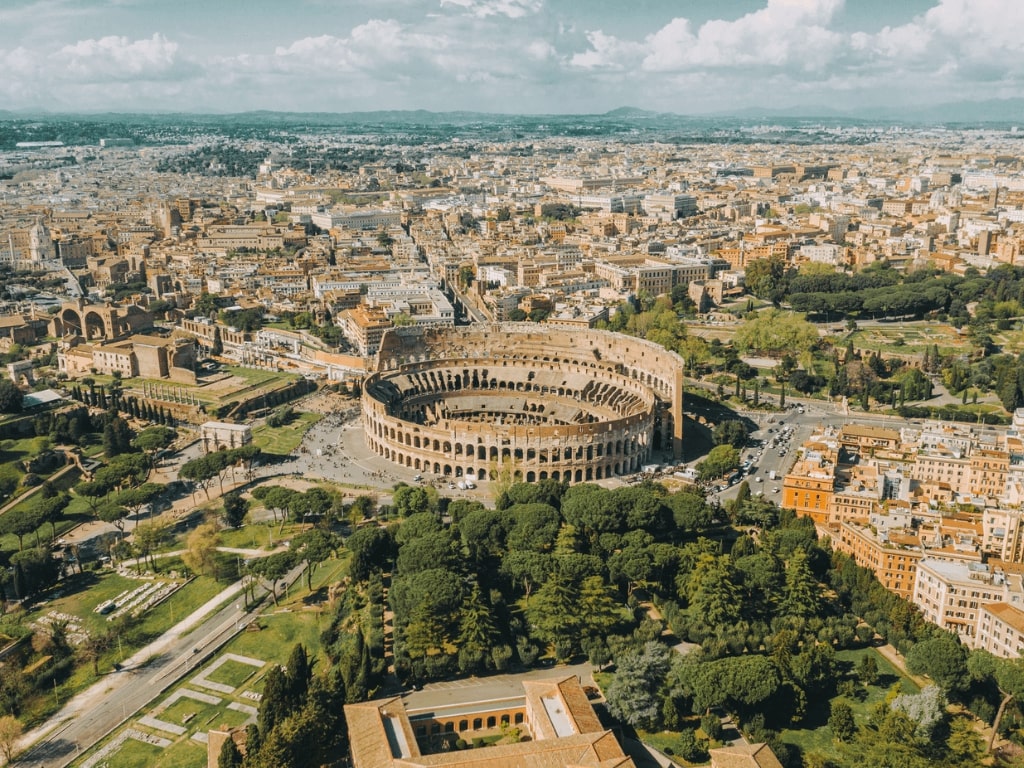Discovering Asakusa, Tokyo's Historic Neighborhood

Join a Tokyo Walking Tour with Context to experience the wonders of Asakusa, hosted by a local expert
Asakusa has a long and rich history dating back over a thousand years. During the Edo period (1603-1868), Asakusa became a popular entertainment district, known for its theaters, teahouses, and restaurants. It was also a center of education, with many scholars and artists living and working in the area.
In the early 20th century, Asakusa was at the forefront of Japan's modernization and cultural renaissance. The area was home to many famous writers, artists, and intellectuals, and it played an essential role in developing modern Japanese popular culture.
This overview will give you a brief history of Asakusa, its cultural landmarks, and how to make the most of your time in this amazing place.
Asakusa Temple
In the 7th century, a Buddhist statue of Kannon, the goddess of mercy, was found in the nearby Sumida River. This led to the establishment of a small temple on the site, which eventually became Senso-ji Temple, the oldest and most famous temple in Tokyo. As one of the most popular and revered temples in Japan, it attracts millions of visitors each year.
If you are planning a visit to Senso-ji Temple, here are some popular customs and traditions associated with the temple:
- Purification: Before entering the temple grounds, it is customary to purify yourself by washing your hands and rinsing your mouth with water from the fountain near the entrance gate.
- Omikuji: Paper fortunes available for a small donation.
- Ema: Small wooden plaques that can be purchased at the temple and used to write wishes or prayers. They are then left at the temple for the gods to answer.
- Incense: Visitors can purchase incense at the temple and burn it in the large incense burner. The smoke is believed to have healing properties and can bring good luck and ward off evil spirits.
- O-mairi: The act of paying respects to the gods by bowing and clapping your hands twice before the altar.
These customs and traditions are deeply ingrained in Japanese culture and are a vital part of the experience of visiting the Senso-ji Temple.
Exploring Asakusa
One of the best ways to experience this district is on our Asakusa Guided Tour, a two-hour, expert-led walking tour.
To frame the story of Asakusa's place in Edo (now Tokyo), your Tokyo walking tour centers on Buddhist temples. Your guide will deftly weave together Asakusa’s past and present, discussing its importance and significance to Japan’s distant history, but also recent topics like the after-effects of WWII and the birth of the plastic food found across Japan. You’ll discuss Asakusa's role as an entertainment district, ukiyo (the "floating world" pleasure-seeking culture of Edo-era Japan).
Your tour will continue along the shopping street Nakamise Dori, where you’ll discuss how Asakusa was rebuilt after a WWII firebombing. The tour concludes at the serene Senso-ji Temple, Tokyo’s oldest Buddhist temple.
As you make your way around Asakusa, take some time to look for traditional crafts and souvenirs or sample local cuisine. With street food and restaurants, there’s something to delight every palate. Asakusa is known for its blend of traditional and diverse food, like ramen, tempura, soba, unagi, and more.
Where to Stay in Asakusa
There are places to stay in Asakusa for every budget and preference. One of the most popular places to stay is the Asakusa View Hotel, a 4-star hotel with 28 floors. It is one of the tallest buildings in the area, offering stunning views of the city and the nearby Senso-ji Temple.
The hotel has over 340 guest rooms, ranging from standard rooms to executive suites. Each room is equipped with modern amenities such as flat-screen TVs, free Wi-Fi, and air conditioning. Some higher-end rooms also offer spectacular views of Tokyo Skytree, the tallest tower in Japan.
The Asakusa View Hotel features several dining options, including a Japanese restaurant, a Chinese restaurant, and a buffet restaurant that serves a mix of Japanese and Western cuisine. The hotel also has a bar and lounge on the 26th floor, offering panoramic city views.
Staying in Asakusa means you can fully experience authentic Tokyo culture, deepening your understanding of the area and its historical significance.
Asakusa Festivals and Events
Asakusa is the perfect place to see traditional Japanese festivals and events. The district is home to year-round celebrations, such as:
- Sanja Matsuri: One of Tokyo's biggest festivals that takes place over three days in mid-May. The festival is held in honor of the three founders of Senso-ji Temple and features parades, music, dancing, and traditional costumes.
- Samba Carnival: An annual event that takes place in late August and features samba dancers worldwide. The festival includes a parade through the streets of Asakusa, and there are also food and drink vendors and live music performances.
- Tori-no-ichi: This festival takes place on two days in November and is held at Otori Shrine. The festival is known for its colorful kumade (bamboo rakes) sold as good luck charms for business success.
- Hagoita Market: An annual December event featuring traditional wooden paddles for a game called hanetsuki. The paddles are elaborately decorated with images of famous Kabuki actors and other cultural icons.
- Asakusa Jazz Streets: This event takes place in late September and features jazz musicians performing in various venues around Asakusa. The festival includes both established and up-and-coming jazz musicians from Japan and around the world.
Attending a festival in Asakusa is a great way to experience Tokyo's rich culture and traditions. Here are some tips to help you make the most of your festival experience:
- Plan ahead: Check the festival schedule and map beforehand so you know where to go and what events to attend. Many festivals can get crowded, so it's a good idea to arrive early to secure a good spot.
- Dress appropriately: Wear comfortable clothes and shoes, as you may be standing or walking for long periods. If the festival is during the summer, wear sunscreen and bring a hat and water bottle to stay hydrated.
- Bring cash: Many food and drink vendors at festivals in Asakusa only accept cash, so bring enough yen with you.
- Respect the traditions: Be respectful of the festival traditions and customs, and follow any rules or guidelines provided by festival organizers. Take off your shoes when entering shrines or temples, and don't disturb any offerings or decorations.
Most importantly – enjoy the festivities! Take the time to explore the festival grounds and participate in any activities or events that interest you. Try the local street food, watch the parades and performances, and interact with the locals to fully immerse yourself in the festival atmosphere.
Frequently Asked Questions About Asakusa
If you’re planning a trip to Asakusa and have some questions, you’re not alone. We answered some of the most common questions about traveling to this incredible district in Tokyo.
Is it better to stay in Shinjuku or Asakusa?
The answer depends on your preferences and how you want to plan your trip!
Unlike Asakusa, Shinjuku has many more places that stay open all night. For those suffering from jet lag or too excited to sleep their first night in Tokyo, Shinjuku has the late-night entertainment that you're looking for. Not only does it have much less of a residential area, especially near the train station.
Asakusa has more traditional buildings and historic landmarks, so history buffs may want to make Asakusa their “home base” during their time in Tokyo.
What does Asakusa mean in Japanese?
In Japanese, kanji characters (which originated from Chinese characters) can change the meaning of a name based on character choice. Even words or names with the same reading can have different meanings depending on the use of the kanji characters.
The first character can mean morning, dawn, court, attendance, or reign. The second character can mean warehouse, hasty, or blue.
How long does it take to get from Tokyo to Asakusa?
Talk about a quick trip! If you take the train, it is typically a 15-20 minute ride. For those taking taxis or buses, it depends on traffic conditions – plan on around 30 minutes to an hour just to be safe.
Why is Asakusa so famous?
Asakusa is known for its serene and beautiful temple, its unique place in Tokyo culture, and the originality of its crafts and souvenirs.
You can take a break from the business of Nakamise-dōri and enjoy it all at a slower pace; old-style shopping streets, local restaurants, and historic avenues with amazing stops at every corner.
Visiting Asakusa
Expand the possibilities of your trip to Tokyo and venture into Asakusa. This beautiful district offers a glimpse of Tokyo’s rich history and culture away from the buzzing lights of the city. If you’re looking for a local expert, take our Asakusa Guided Tour for a one-of-a-kind experience.
Step outside the typical tourist hotspots and live like a local in Asakusa. Whether you visit the Asakusa Temple, attend a traditional festival, or simply enjoy a more relaxed energy, Asakusa is a must-see on any trip to Toyko.
Even More from Context
We're Context Travel 👋 a tour operator since 2003 and certified Bcorp. We provide authentic and unscripted private walking tours and audio guides with local experts in 60+ cities worldwide.
Search by CityKeep Exploring

